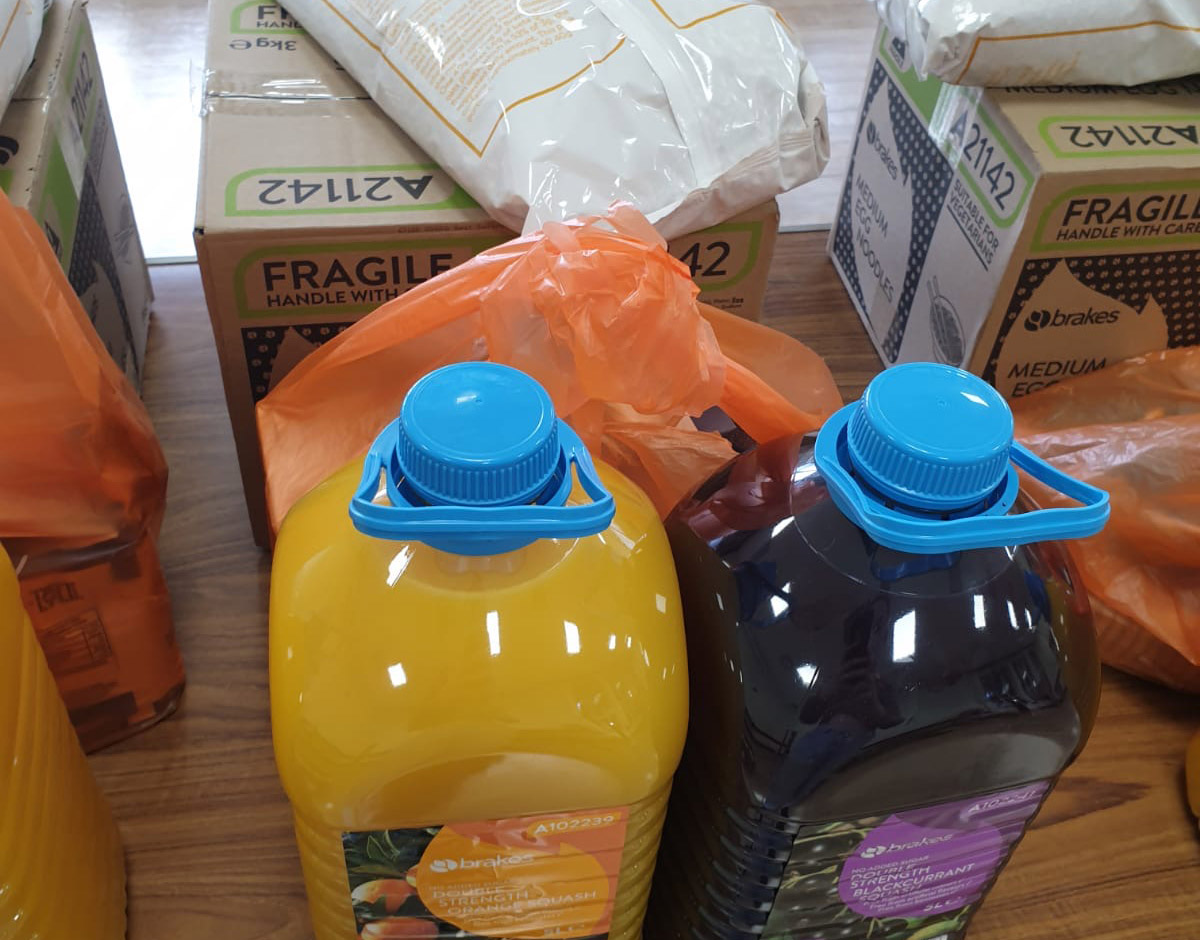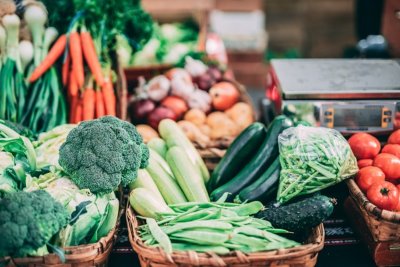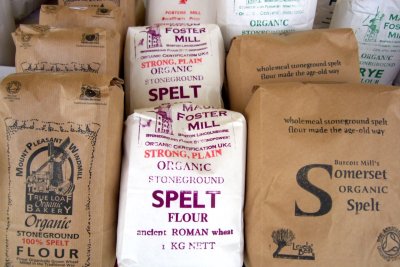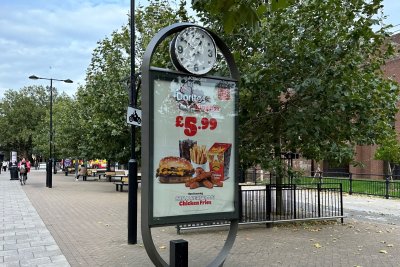 Photo credit: Food parcel for clinically extremely vulnerable people, March 2020. Anonymous but verified source
Photo credit: Food parcel for clinically extremely vulnerable people, March 2020. Anonymous but verified source
Archived project
Please note that the content on this page has been archived and is not actively reviewed at present.
Updated 30 March, 2020
Food parcels are starting to be delivered to the doorsteps of some of the 1.5 million clinically extremely vulnerable people – those living with specific medical conditions – who have been advised to shield themselves from Covid-19 by staying at home for at least 12 weeks. Many will otherwise struggle to get the food and other basic necessities they need.
To be absolutely clear, we understand that these food parcels are intended only for clinically vulnerable people with specific medical conditions who have to shield. And only for the smaller subset within this group who are unable to secure food by other means. They are not aimed at providing food for those who have family or neighbours to do their shopping; nor for children or adults who struggle to access food due to being on a low income and/or eligible for Free School Meals (they are being offered school catering services or supermarket vouchers instead); nor for people with no recourse to public funds; nor to support people shielding due to being aged over 70, but who are otherwise fit and well.
Coronavirus Food Alert: If people can’t afford to eat, they can’t afford to stay at home.
Please join us in calling for people on the lowest incomes to receive money to buy the food they need during Covid-19, to help everyone stay safe and well. Read our joint statement and if you are happy to sign up in support, send your name, job title and organisation's name to: imogen@sustainweb.org
As the food parcel deliveries start to arrive, we are hearing concerns being raised about the quality of food in the standardised parcels consisting only of ambient packaged food, and whether items such as tinned meat and dilutable squash meet the nutritional needs of people with specific medical conditions such as cancer. Some informal pictures from local schemes show fresh fruit and vegetables, but others not. Advice from a clinical dietitian used to advising on food for people with serious medical conditions is probably needed. However, these are very early days and the picture is not yet clear.
The food is coming from supermarkets and foodservice companies, with large commercial distributors providing most of the packing and deliveries, mainly direct to people’s doorsteps, with personal contact details handled sensitively. We are hearing of some local distribution hubs for these food parcels being run by charities and voluntary sector groups, working with local authorities. We understand that the army and emergency services are also being made available to help with planning, logistics and deliveries if needed.
Official plans seen by Sustain and alliance members suggest that the Government’s resilience and emergency planners have started with 50,000 food parcels this week, and could ramp up to a theoretical 400,000 per week over the next month or so. The NHS, GPs and clinicians will contact clinically vulnerable people directly, or people who think they are eligible can register on the government website using their NHS patient number.
However, big gaps are already emerging. The Government’s advice to shield applies to 17.6 million people in the UK – people aged over 70; people who are clinically extremely vulnerable; and pregnant women. For anyone not classified as clinically extremely vulnerable but struggling to access food and other necessities (Food Foundation figures suggest this could be a very large number of people – perhaps even millions), local authorities have been asked to make sure there is a clearly publicised telephone number that people can call for help accessing the necessities they need to enable them to self-isolate or to shield. We have not seen some of such local telephone numbers having already been established. We worry that they will quickly be deluged by calls, with no clear money or advice available for those who are not clinically vulnerable but lack the necessary resources to access the food they need.
As far as we know - and this will vary across the country - the mechanism to coordinate distribution of he food parcels is via local authority hubs (with 'hubs' in the sense of information and liaison, not necessarily a physical hub), with Local Resilience Forums (LRFs) having a key coordination role. LRFs are usually partnerships between local authorities and the emergency services, such as the police, fire brigade and ambulance service – you can find their local contact details here. They work in coordination to tackle natural disasters and complex emergency situations. We hear that some are already contacting existing food banks, food aid groups and food businesses locally to identify suitable premises and volunteers to help with deliveries of the food parcels to clinically extremely vulnerable people.
It’s probably fair to say that providing large amounts of food to vulnerable people, and over an extended period, is a new area of work for most local authorities and emergency service providers that are involved in LRFs. Some may also not be aware of the existence, extent and entrenched nature of food poverty problems due to low income, financial crisis, mental health issues or destitution that will make it extremely difficult for very large numbers of people to self-isolate or to shield.
Sustain is increasingly concerned that economic vulnerability and food poverty have not yet been factored in to Government or LRF emergency and resilience planning. Our alliance is arguing for an immediate uplift to social security benefits, to enable more people to be able to afford the food they need. We are also lobbying the Department for Work and Pensions, Defra and the Ministry for Housing, Communities and Local Government (heading up the resilience and emergency planning with LRFs) to recognise that if people can’t afford to eat, they can’t afford to stay at home.
If you have information to share on this theme, please write to: kath@sustainweb.org
Coronavirus Food Alert: Sustain's work on food resilience in the COVID-19 coronavirus pandemic.We are helping secure food for vulnerable people and supporting local emergency responses.
Sustain
The Green House
244-254 Cambridge Heath Road
London E2 9DA
020 3559 6777
sustain@sustainweb.org
Sustain advocates food and agriculture policies and practices that enhance the health and welfare of people and animals, improve the working and living environment, promote equity and enrich society and culture.
© Sustain 2024
Registered charity (no. 1018643)
Data privacy & cookies


